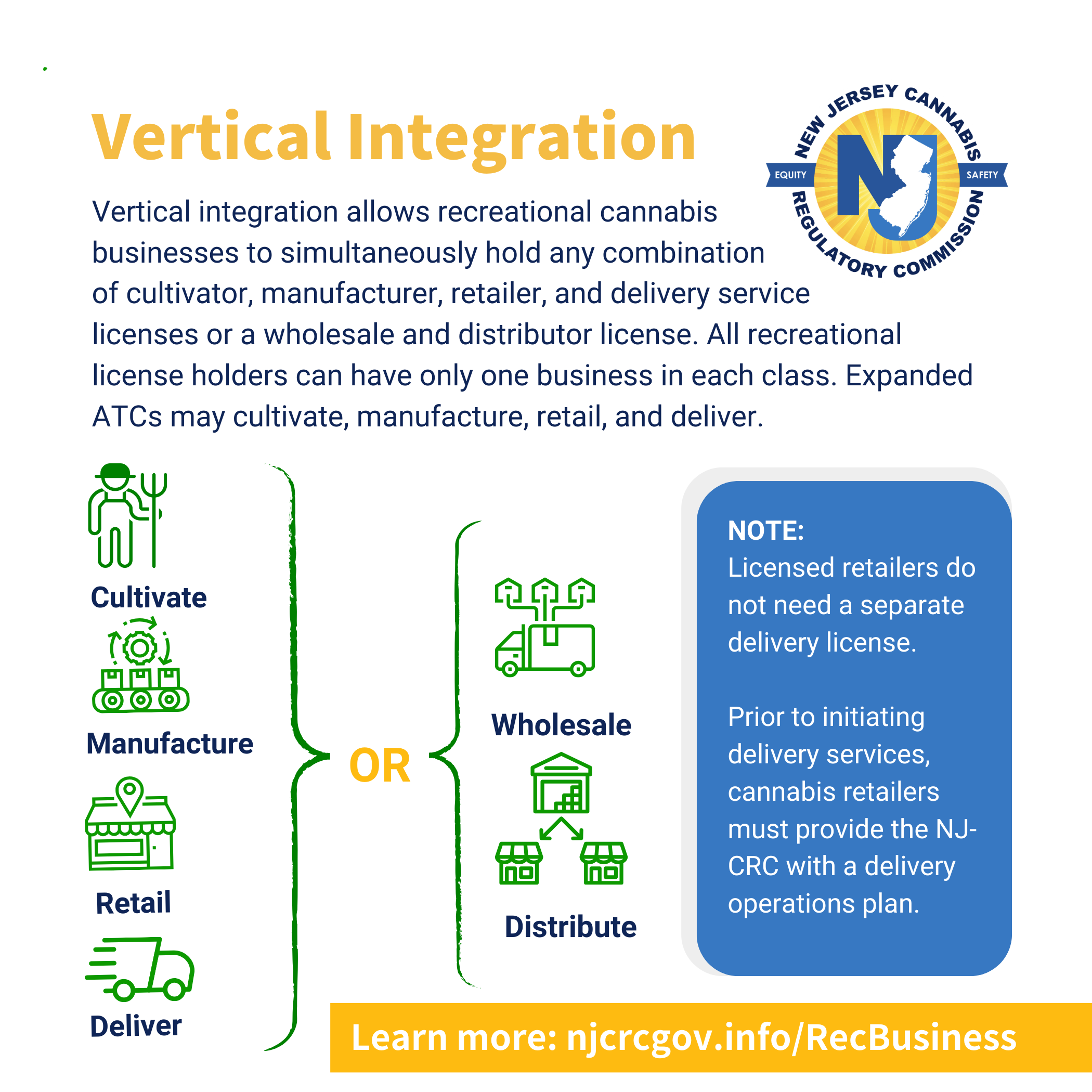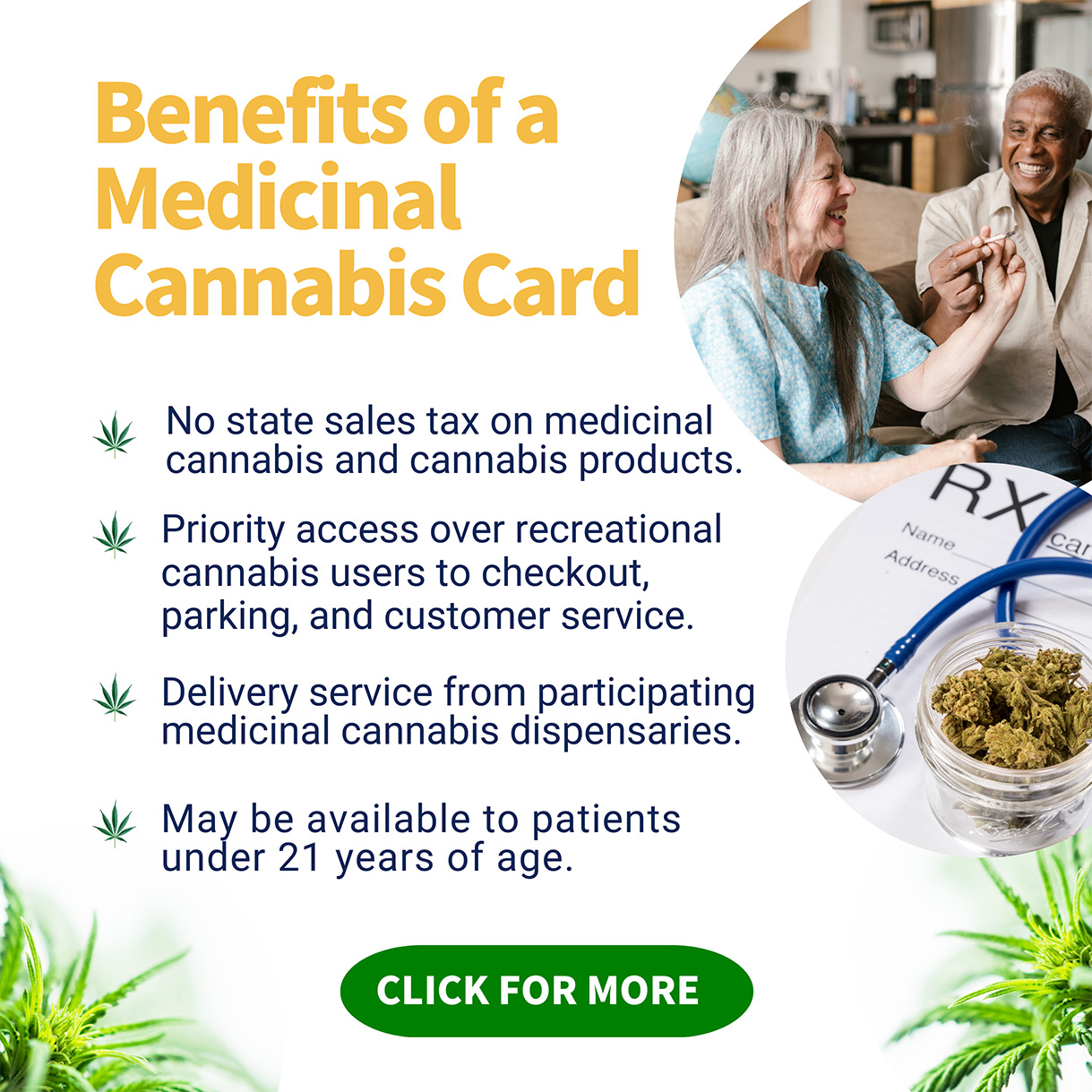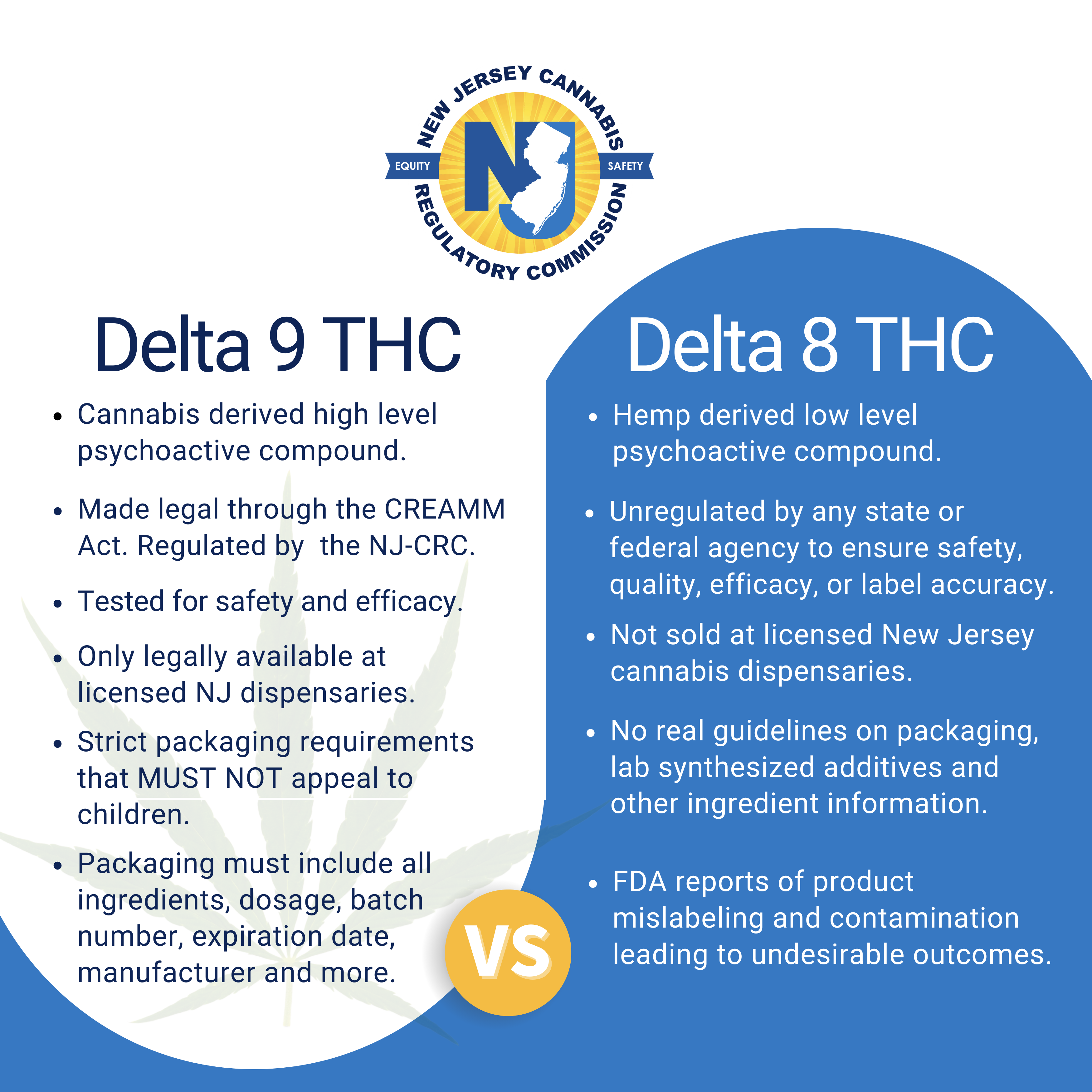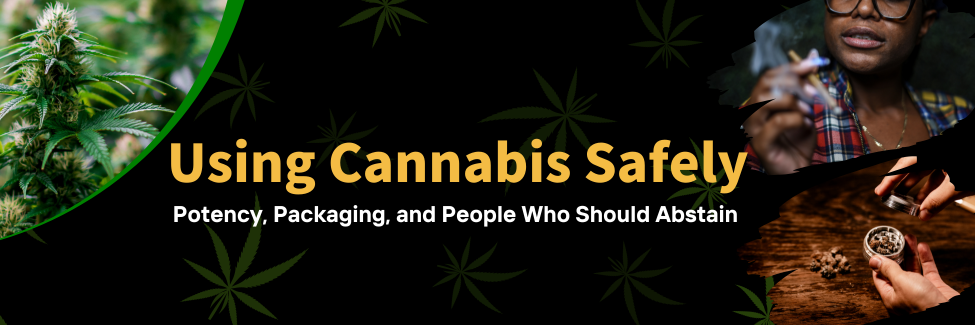
Using Cannabis Safely: Potency, Packaging, and People Who Should Abstain
While cannabis is legal in the state of New Jersey, cannabis consumption is not safe for all New Jerseyans. For all users, understanding how formulations vary in potency and how potency affects the brain and the body is essential for safe and responsible consumption.
The cannabis available for sale today is not the same kind of weed your grandparents may have smoked. According to the National Institute of Health, cannabis potency has been increasing steadily for 30 years. In 1995, the average percentage of delta-9-tetrahydrocannabinol (THC) found in cannabis was approximately 3.96%. By 2021, that number had increased to 15.34%. If the trend holds, we can expect cannabis potency to continue to rise. Since high THC content is linked to adverse outcomes, users need to be fully informed about the THC levels in their products.
Buying cannabis legally ensures you receive products tested for potency and contaminants such as fungus, pesticides, and heavy metals. In addition, all cannabis products sold at New Jersey dispensaries are tracked "from seed to sale," ensuring their continued safety through processing and packaging until they reach the consumer. The packaging for your cannabis product also clearly identifies the product manufacturer, their permit number, the cannabis lot number, and the product dosage guidelines. Labeling and tracking products ensure products can be recalled should adverse events occur after consumers have used a product from a licensed dispensary.
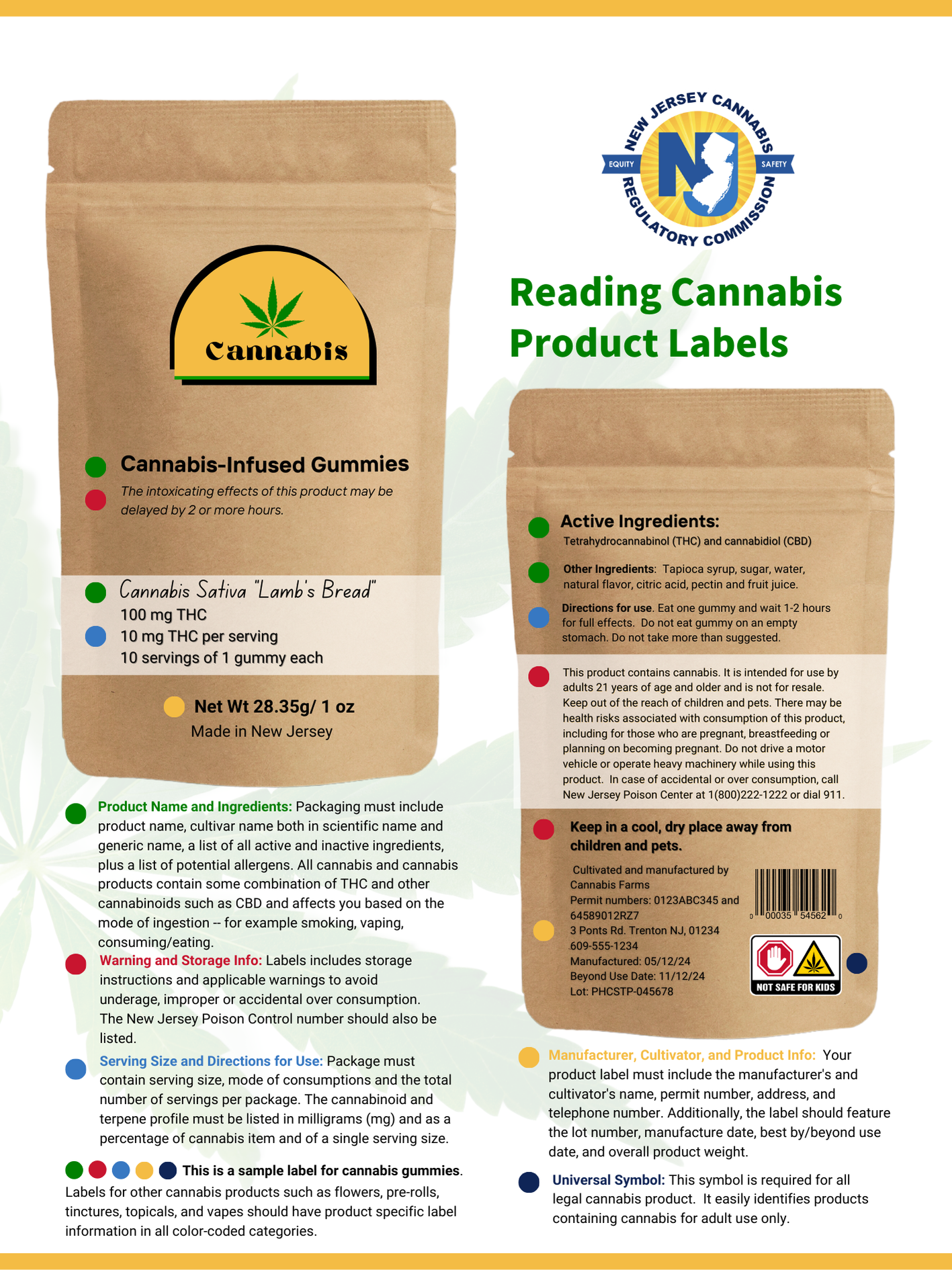
What You Should Look for on Cannabis Product Packaging
Regardless of the type of cannabis product you buy, the packaging should give you all the information you need to use it safely.
- The name, address, license number, and telephone number of the cannabis cultivator and cannabis manufacturer that produced the cannabis.
- A sequential serial number, batch or lot number, and bar code to identify the batch or lot associated with cultivation or manufacturing.
- Serving size and total servings contained in the finished cannabis item.
- The cannabinoid and terpene profile in milligrams MG and/or as a percentage of the finished cannabis item.
- The chemotype. That is the ratio of THC to CBD in the product.
- The THC/CBD amount in milligrams (mg) and the number of mgs in a single serving/dose.
- Net weight and quantity of the cannabis items contained in the package.
- Production and expiration dates.
- Requirements for proper storage.
- A list of any other inactive ingredients.
- A list of all potential allergens.
Who Shouldn't Use Cannabis or Cannabis Products?
Most cannabis users enjoy desired effects - relaxation, euphoria, increased appetite, pain relief - but some people may be prone to adverse reactions like paranoia, panic attacks, and or nausea. Cannabis may not be for you if you fall into one of the following categories:
- Anyone under the age of 21 years old. The Center for Disease Control (CDC) notes that cannabis "use beginning in teen years or younger may affect brain development which may impair thinking, memory, and learning.' Additionally, people were more likely to develop cannabis use disorder when their first use of cannabis occurred as an adolescent.
- Those who are pregnant may become pregnant or breastfeed. According to the Substance Abuse and Mental Health Administration, "No amount of marijuana has been proven safe to use during pregnancy or while breastfeeding." Cannabis use during pregnancy can lead to complications and long-term effects on brain development.
- If you have been diagnosed with some mental conditions, or such conditions exist in your family, you should speak with your doctor before trying cannabis products.
- If you are taking prescription medication, speak to your doctor before any cannabis use.
If you are new to cannabis, start click here to learn more. All licensed dispensaries can be found click here for all licensed dispensaries.
DISCLAIMER
The information presented in this blog post is for informational purposes only and should not be used as a substitute for professional medical advice, diagnosis, or treatment. Seek advice from your physician or other qualified healthcare provider if you have any questions about a medical condition or incorporating cannabis into your treatment. Do not ignore professional medical advice or delay seeking it due to anything you may have read on this website.
Previous Blog Posts
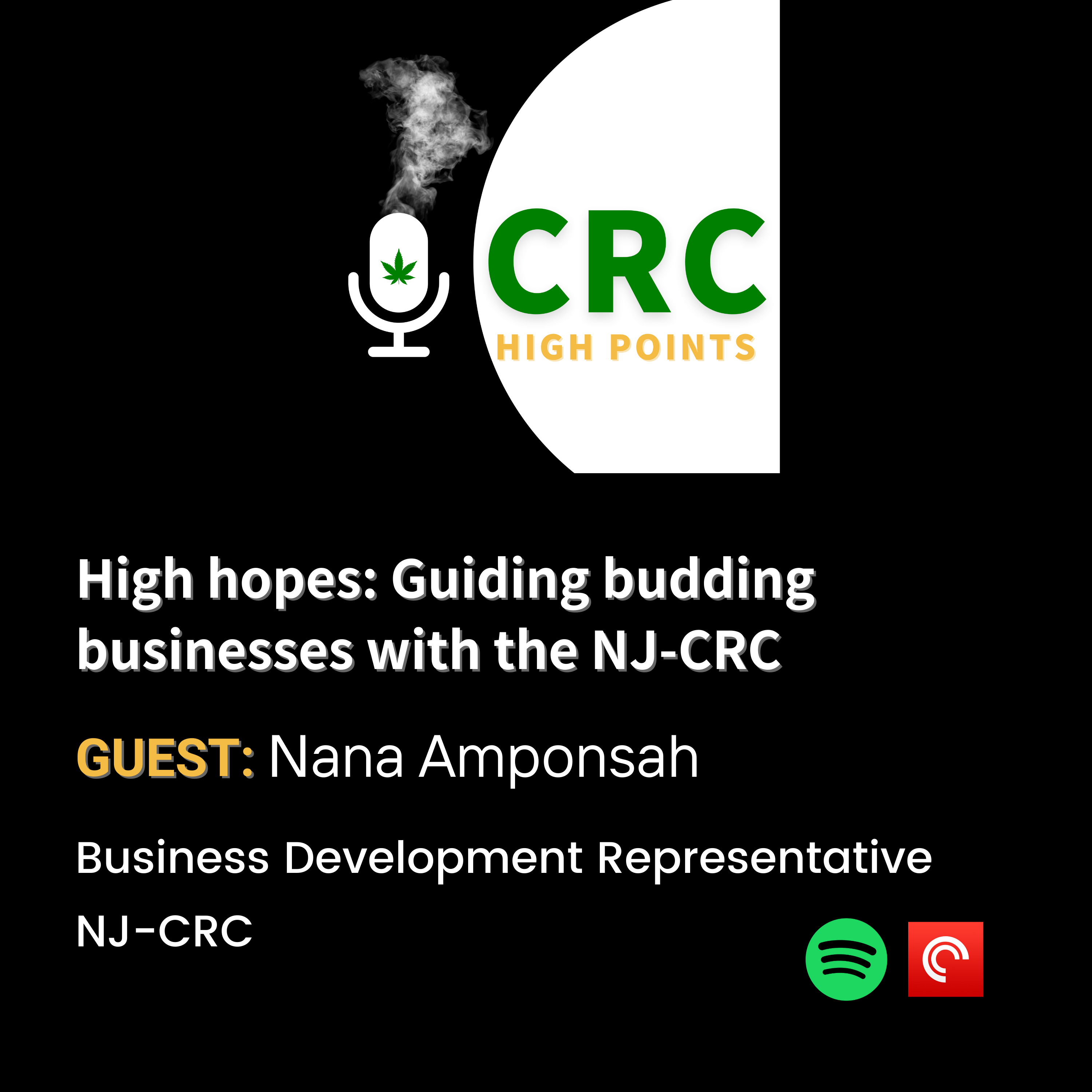
High Hopes: Guiding budding businesses with the NJ-CRC
09/5/2025
Nana Amponsah, business development representative at NJ-CRC, talks about her role, as part of the Office of Diversity & Inclusion, in identifying challenges cannabis entrepreneurs face, providing assistance to applicants and new businesses wherever possible, and acting as a liaison between cannapreneurs and other state agencies that provide support. She also explains how NJ cannabis business development differs from other fields, emphasizing the continuous need for support.

Tips for SMART Gatherings This Holiday Season
11/26/2025
The holidays are a time for food, fun, laughter, and connecting with the people who make life sweeter. And as more adults in New Jersey choose to enjoy, or gift legal cannabis during the season, the NJ-CRC has launched its second safe-use campaign, S.M.A.R.T., to help keep celebrations (relatively) stress-free. S.M.A.R.T. is an easy way to remember the basics of responsible cannabis use, especially when travel is constant, roads are chaotic, homes are busy, and curious little ones are wandering.
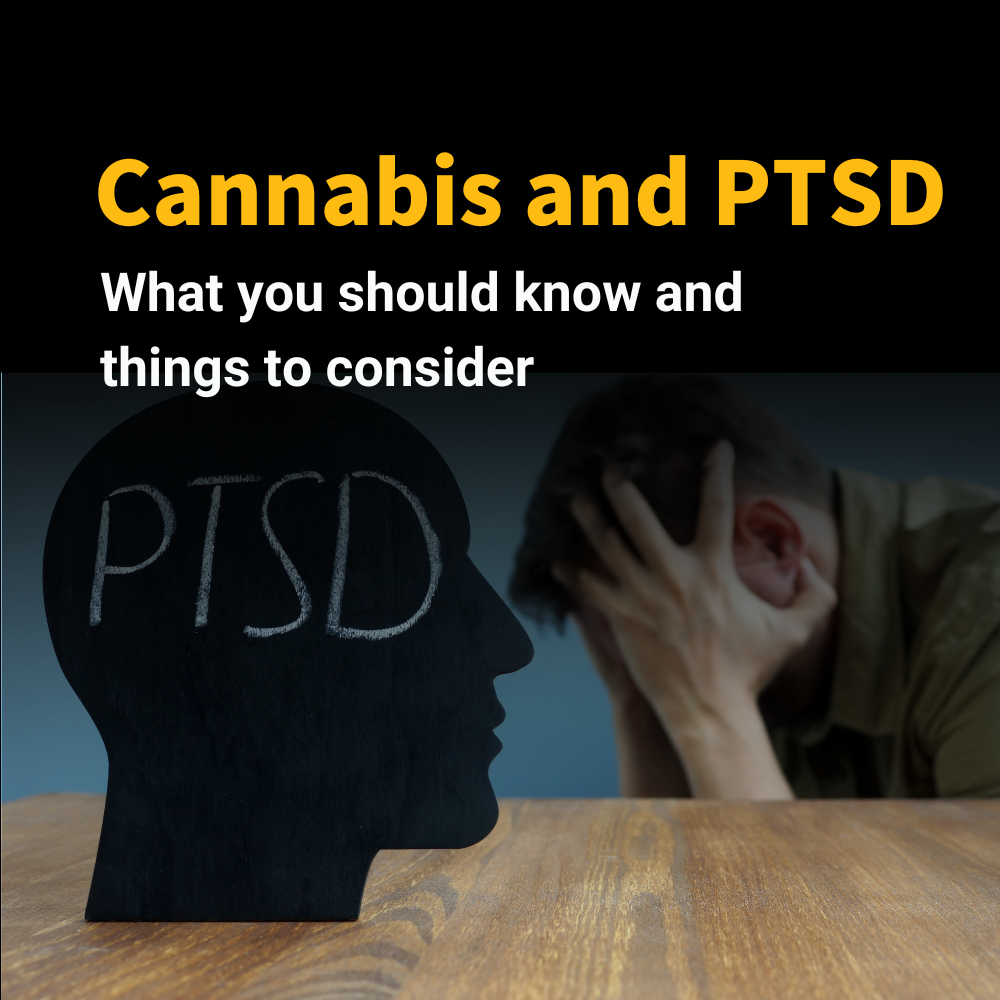
Cannabis and PTSD
10/20/2025
Everyone feels pain at some point—whether it’s a sore back after a long day, a pounding headache, or stomach cramps that just won’t let up. But for some people, pain isn’t temporary. It’s a constant part of daily life. Anxiety disorders are the most common qualifying condition for New Jersey’s Medicinal Cannabis Program (MCP). However, various forms of pain also rank highly on the list of qualifying conditions. Specifically, chronic pain related to musculoskeletal disorders is the second most common condition, migraines are fourth, and chronic pain originating from visceral sources ranks fifth.
 Official Site of The State of New Jersey
Official Site of The State of New Jersey
